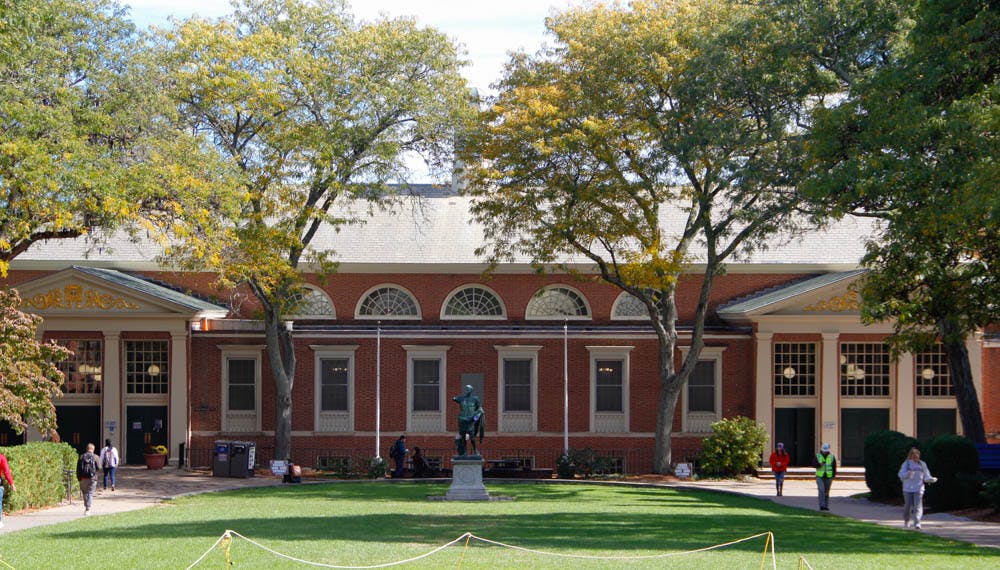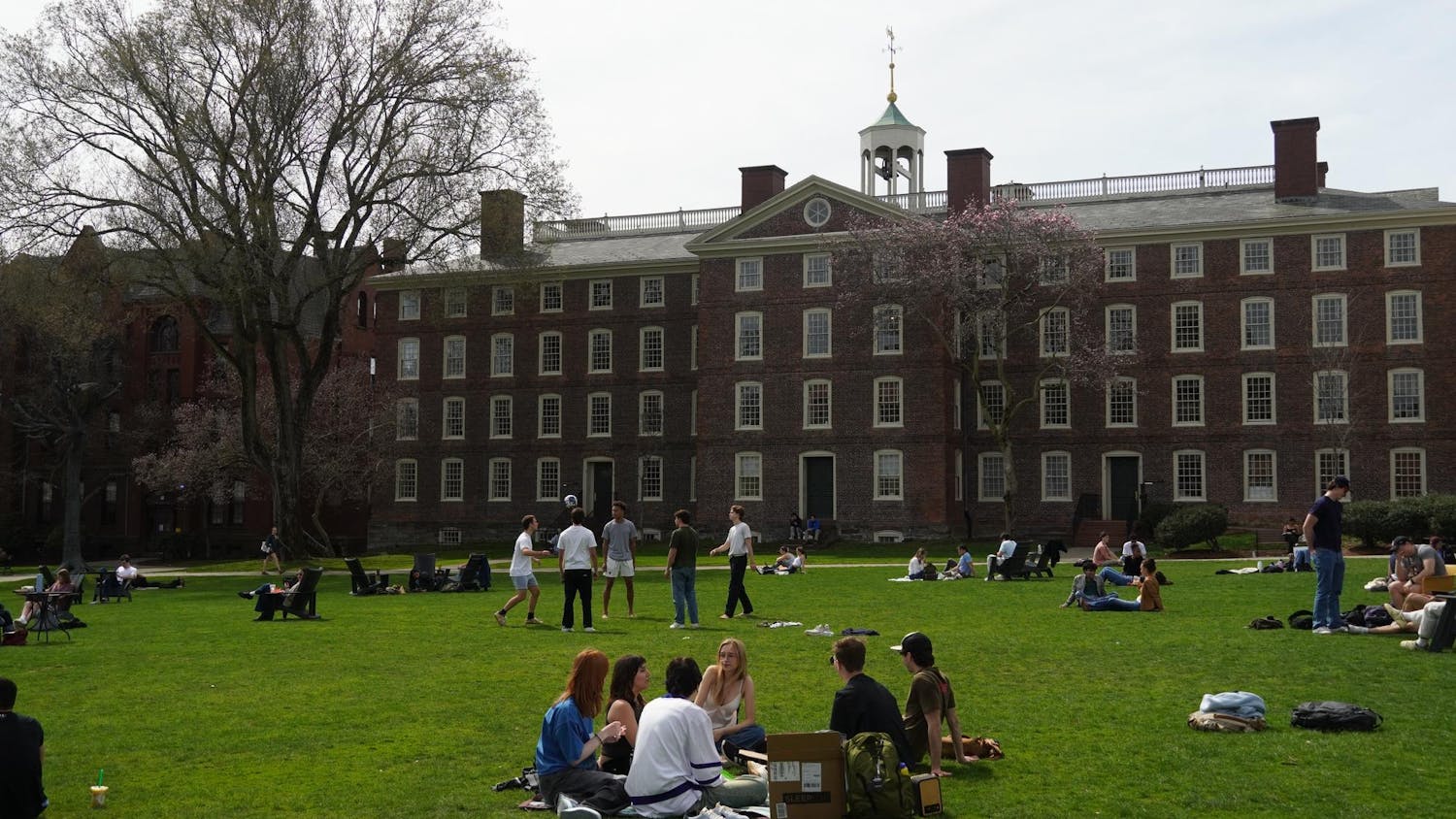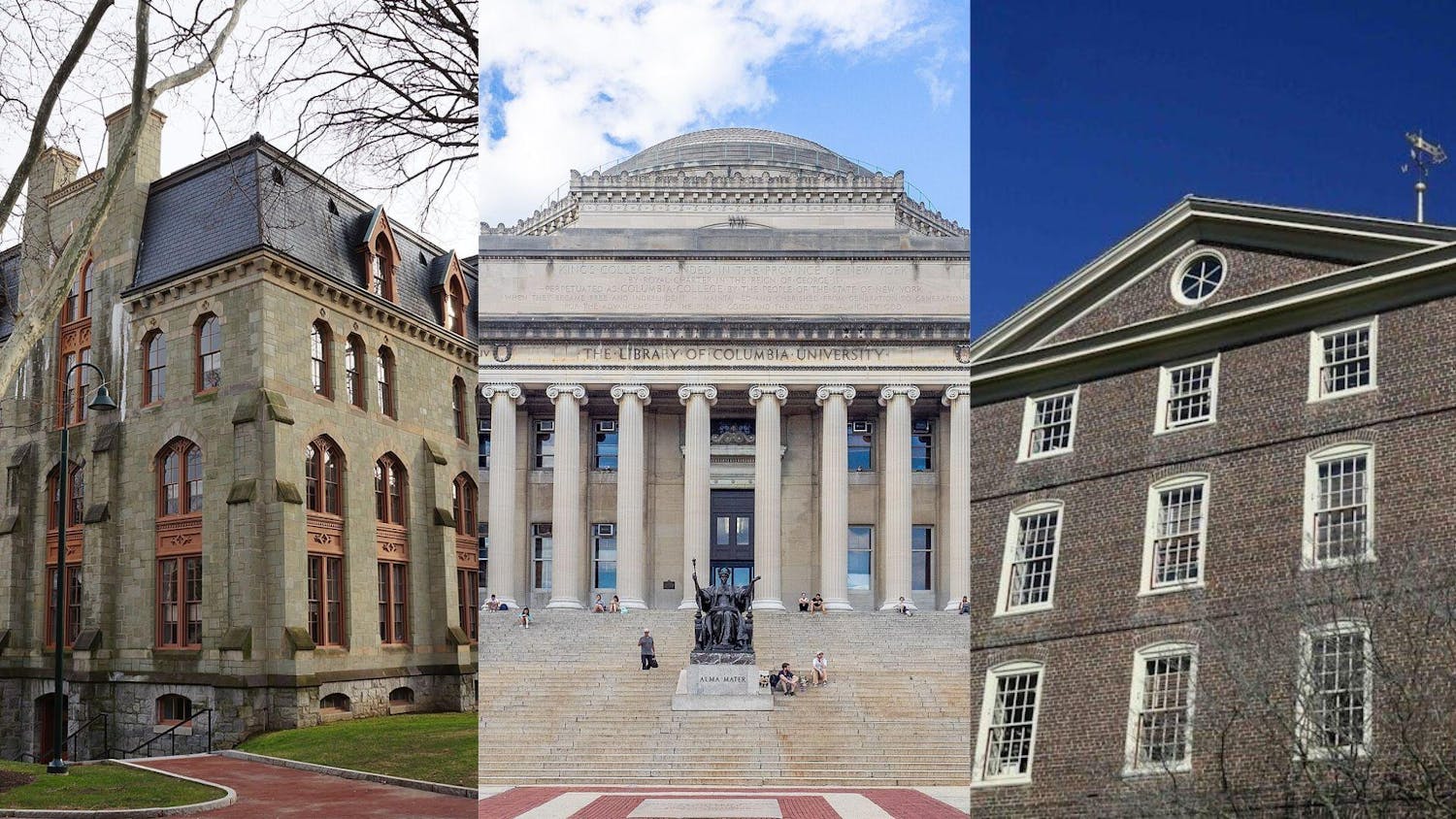The University announced a $3 million investment to install air conditioning throughout the Sharpe Refectory Sept. 28. After year-long efforts to secure A/C in the University’s largest dining hall, students and dining services employees are now turning their attention to claims of understaffing at the Ratty amid ongoing union contract negotiations.
A/C should be installed in the Ratty by summer 2019, said Brian Clark, director of news and editorial development, but preliminary work has already begun to revamp the building’s infrastructure.
These upgrades — which include improvements to the Ratty’s electrical system and ductwork — began in June and are expected to be completed by December. “At this point, infrastructure work will continue through December and work to begin A/C installation will proceed concurrently,” Clark said.
Along with the preparatory upgrades, the University conducted an extensive feasibility study to determine the practicality of air conditioning implementation in the Ratty and to “develop recommendations on the best way to install A/C,” Clark said.
Due to the building’s age —the Ratty was built in 1950 — “it’s not quite a matter of plugging in an air conditioner like you would in a window unit, it’s a much more significant undertaking than that,” Clark said.
The decision to implement cooling capabilities in the Ratty comes in light of an ongoing campaign led by the Student Labor Alliance to improve conditions for dining hall workers, which began in spring 2018. Previously, Summer@Brown resident advisors took up the cause in spring 2017, The Herald reported.
High usage of the Ratty during Summer@Brown prompted complaints by dining staff that working conditions were not safe without air conditioning, The Herald previously reported.
The need to address cooling in the building in the summer has “become more pronounced” with the “significant enrollment growth” of summer programs within the last five years, Clark said.
While the SLA is pleased with the progress made on cooling capabilities at the Ratty, SLA member Evan Lehmann ’19 emphasized that the administration has yet to address many other pressing concerns. “It’s important to recognize that there are other issues that the University still needs to respond to,” Lehmann said. One such pressing concern for dining workers is the persistent understaffing at the Ratty, he said.
Since Brown Dining Services began its partnership with Bon Appetit in fall 2016, the SLA said that new responsibilities and larger menus have magnified the issue of understaffing.
A dining services employee at the Ratty, who asked to remain anonymous for fear of professional repercussions, said that the Ratty has never been more understaffed in her 14 years at Brown.
In the midst of contract negotiations between the dining staff union and the University, workers have made resolving understaffing their top priority, said Sammie Chomsky ’18.5, another SLA member.
Dining staff is currently pushing for more full-year positions given the increased use of the Ratty during the summer months. According to contract proposals from United Service and Allied Workers of Rhode Island — the union which represents Brown dining staff — only 60 percent of union staff works 52 weeks per year, meaning that many workers must be employed by Brown for over a decade before achieving full-time status. USAW-RI proposed an increase in the number of full-year workers to ensure that dining staff earn a more livable wage.
Benvida Monteiro is one such worker who is not employed during the summer months. “I know I still have at least 10 more years to go before I get a 12-month position. And I’ve already been working here for almost seven years,” she said.
A nine-month position makes securing employment in the summer months difficult. “A lot of workers are not given contracts for the entire year, so they are forced to find jobs during the summer which is really hard to do because they are employed for the other nine months,” Lehmann said, “Nobody is going to hire someone for just three months.”
“There’s a lot of people sitting at home who need a job but don’t have one (over the summer) for two and a half months,” Monteiro said.
University lawyers have prohibited the SLA from partaking in proceedings between the union and administration, even as observers. Clark said it is University protocol to limit negotiation sessions to the “direct parties” of the agreement being discussed. “Contract negotiation sessions are limited to representatives from Brown, members of the bargaining unit and their union representatives. That is the case here and is the consistent practice at Brown for any negotiation.”
But the SLA has been in “constant contact with particular workers, including some of the union stewards,” Lehmann said. Even without a direct role in contract negotiations, the SLA still believes that they have a powerful voice in protecting the rights of workers. “There are other accountability mechanisms. We are talking to workers all the time and if we need to escalate, we will escalate,” Lehmann said.
The SLA recognizes the importance of their role in reaching an agreement on air conditioning and dining workers’ other concerns, Chomsky said. But they believe that the workers themselves deserve more of a voice in the proceedings.
“It doesn’t make any sense for students to be the final arbiters of what is a safe workplace,” Chomsky said, “When the workers have been telling the administration for decades that it’s too hot over the summer, they can’t claim that they’re a just employer and not listen to those demands.”
“The proposals we have exchanged with union representatives of course address staffing and positions. All of our contracts are posted to the web upon completion, so the details will all be publicly accessible at the end of the process,” Clark wrote in a follow-up email to The Herald.
The current contract between the University and the United Service and Allied Workers of Rhode Island is scheduled to end Nov. 1.
Correction: An earlier version of this story misattributed the line "High usage of the Ratty during Summer@Brown prompted complaints by dining staff that working conditions were not safe without air conditioning" to Brian Clark, director of news and editorial development. In fact, the line should be attributed to previous Herald coverage. The Herald regrets the error.





